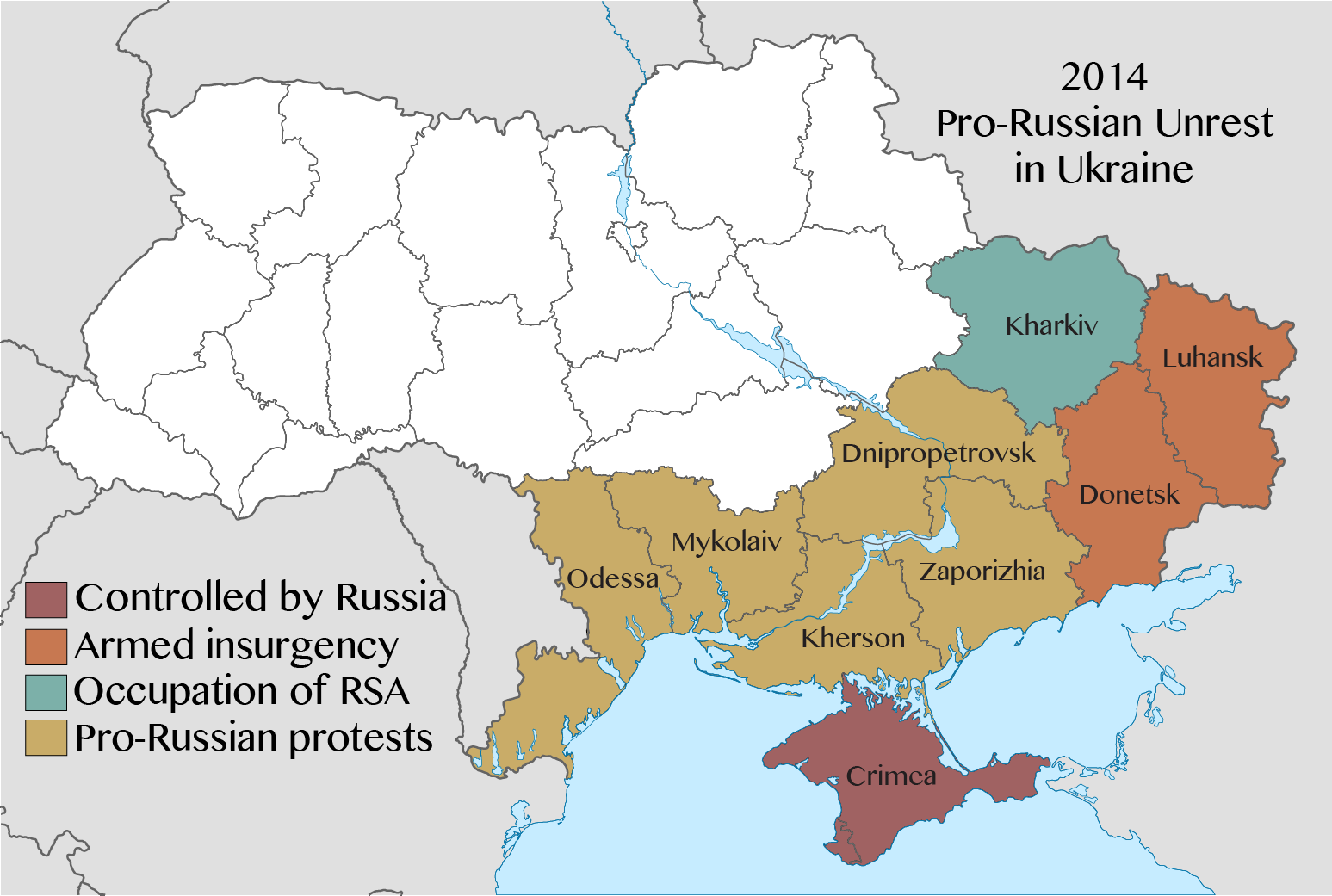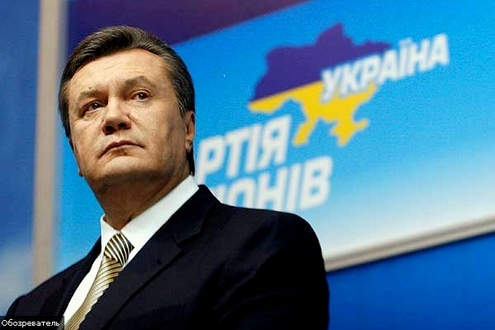|
|
Post by pieter on Feb 21, 2022 5:45:41 GMT -7
|
|
|
|
Post by pieter on Feb 21, 2022 5:57:08 GMT -7
|
|
|
|
Post by karl on Feb 21, 2022 10:25:55 GMT -7
Pieter
In the matter of this currant issue between Russian and Ukraine, I do refrain from entering a reply in respect to the sensitivities of our American friends here.
In the matter of German refusal of providing weapons to Ukraine is a simple one, the Ukrainians have started this mess over eight years in past with their internal war against the Donbas region and in the process are or were losing with a considerable loss of weapons and man power to poor management and lack of competency in combat effectiveness. With this, it is not permissible under the German constitution of providing weapons of war to a state in the stage of war. Although Ukraine is not in a state of war with another state, it is in a state of civil war against its own country men with opposite views that do not correspond with current and past views of the Ukrainian Government as an internal issue.
It has been and needs be the responsibility of the Ukrainian government some years past to have brought both sides together in a manner of a peaceful resolution and the resulting failure that is theirs to shoulder has brought this entire mess upon their own shoulders and now have brought two major powers against one another as the result of their failures.
Karl
|
|
|
|
Post by pieter on Feb 21, 2022 12:15:01 GMT -7
Karl,
There are various parties in a conflict and we have to take them into account. On the Ukrainian side you had various political forces that supported the Revolution of Dignity, also known as the Maidan revolution, and this opposition took power after the the ousting of elected president Viktor Yanukovych and the overthrow of the Ukrainian government. You had the new Ukrainian administration, the loyal Ukrainian police, the Ukrainian secret service SBU (Sluzhba Bezpeky Ukrayiny) and the Ukrainian army loyal to the Kyiv administration and in the Donbas and Luhansk regions you had SBU officers, police officers and army officers that deserted and became police officers in the Donetsk and Luhanks peoples republics or part of the Russian separatist forces of Donbas and Eastern-Ukrainian ethnic Russian militias and armed volunteer groups unified as the United Armed Forces of Novorossiya (Russian: Объединённые Вооруженные Силы Новороссии; acronym NAF). On the Ukrainian side you had and have the para military groups; Azov Battalion, Dnipro-1 Regiment, Donbas Battalion, the 22nd Motorized Infantry Battalion also known as Kharkiv Battalion, the 24th Separate Assault Battalion "Aidar" (also known as the Aidar Battalion). These paramilitary groups exist and fight next to the Armed Forces of Ukraine, the Ukrainian Ground Forcesand the National Guard of Ukraine (Ukrainian: Національна гвардія України, Natsionalna hvardiya Ukrayiny, abbreviated NGU), the Ukrainian national gendarmerie.
The Revolution of Dignity (Ukrainian: Революція гідності, romanized: Revoliutsiia hidnosti), also known as the Maidan revolution (Ukrainian: Українська революція 2013-2014 років, romanized: Ukrainska revoliutsiia 2013-2014 rokiv), took place in Ukraine in February 2014 at the end of the Euromaidan protests, when a series of violent events involving protesters, riot police, and unknown shooters in the Ukrainian capital Kyiv culminated in the ousting of elected president Viktor Yanukovych and the overthrow of the Ukrainian government.
In November 2013 a wave of large scale protests (known as Euromaidan) erupted in response to president Yanukovych's refusal to sign a political association and free trade agreement with the European Union at a meeting of the Eastern Partnership in Vilnius, Lithuania. These protests continued for months. In February 2014 clashes between the protestors and the riot police became violent, and resulted in the deaths of nearly 130 people, including 18 police officers. On February 21, an agreement between president Yanukovych and the leaders of the parliamentary opposition was signed that called for early elections and the formation of an interim unity government. The following day, Yanukovych fled from the capital ahead of an impeachment vote. The protesters proceeded to take control of the capital buildings. On the same day, the parliament declared that Yanukovych was relieved of duty in a 328-to-0 vote (out of the Rada’s 450 members).
Yanukovych said that this vote was illegal and possibly coerced, and asked the Russian Federation for assistance. Russia considered the overthrow of Yanukovych to be an illegal coup, and did not recognize the interim government. Widespread protests, both in favor of and against the revolution, occurred in the eastern and southern regions of Ukraine, where Yanukovych previously received strong support in the 2010 presidential election. These protests escalated, resulting in a Russian military invasion and the establishment of the self-proclaimed proto-states Donetsk and Luhansk.
The interim government, led by Arseniy Yatsenyuk, proceeded to sign the EU association agreement. Petro Poroshenko became the president of Ukraine after a landslide victory in the 2014 presidential elections. The new government restored the 2004 amendments to the Ukrainian constitution that were controversially repealed as unconstitutional in 2010 and initiated a large-scale purge of civil servants who were associated with the overthrown regime.Anti-Maidan The anti-Maidan (Ukrainian: Антимайда́н, romanized: Antymaidan; Russian: Антимайдан, romanized: Antimaydan) refers to a number of demonstrations in Ukraine first directed against the Euromaidan and later the new Ukrainian government. The initial participants were in favor of supporting the cabinet of the second Azarov government, President Viktor Yanukovych, and closer ties with Russia. After the overthrow of Yanukovych, anti-Maidan became divided into various other groups, which partially overlapped. These ranged from people protesting against social ills, to supporters of a federalization of Ukraine, to pro-Russian separatists and nationalists. The anti-Maidan (Ukrainian: Антимайда́н, romanized: Antymaidan; Russian: Антимайдан, romanized: Antimaydan) refers to a number of demonstrations in Ukraine first directed against the Euromaidan and later the new Ukrainian government. The initial participants were in favor of supporting the cabinet of the second Azarov government, President Viktor Yanukovych, and closer ties with Russia. After the overthrow of Yanukovych, anti-Maidan became divided into various other groups, which partially overlapped. These ranged from people protesting against social ills, to supporters of a federalization of Ukraine, to pro-Russian separatists and nationalists.
Several news outlets have investigated the claims to confirm that by and large, attendees at pro-government rallies did so for financial compensation and not for political reasons, and were not an organic response to the Euromaidan. "People stand at Euromaidan protesting against the violation of human rights in the state, and they are ready to make sacrifices," said Oleksiy Haran, a political scientist at Kyiv Mohyla Academy in Kyiv. "People at Antimaidan stand for money only. The government uses these hirelings to provoke resistance. They won't be sacrificing anything." However, 42 Antimaidan activists lost their lives in the 2014 Odessa fire.2014 pro-Russian unrest in Ukraine Map of protests by region, indicating the severity of the unrest at its peakFrom the end of February 2014, demonstrations by pro-Russian and anti-government groups took place in major cities across the eastern and southern regions of Ukraine, in the aftermath of the Euromaidan movement and the 2014 Ukrainian revolution. During the first stage of the unrest, known as the "Russian Spring" (Russian: Русская весна, romanized: Russkaya Vesna), the Ukrainian territory of Crimea was annexed by the Russian Federation after a Russian military intervention, and an internationally criticized (based on UN resolution 68/262) Crimean referendum. Protests in Donetsk and Luhansk regions (oblasts) escalated into an armed pro-Russian separatist insurgency, including a co-ordinated political and military campaign against Ukraine by the Russian Federation. Map of protests by region, indicating the severity of the unrest at its peakFrom the end of February 2014, demonstrations by pro-Russian and anti-government groups took place in major cities across the eastern and southern regions of Ukraine, in the aftermath of the Euromaidan movement and the 2014 Ukrainian revolution. During the first stage of the unrest, known as the "Russian Spring" (Russian: Русская весна, romanized: Russkaya Vesna), the Ukrainian territory of Crimea was annexed by the Russian Federation after a Russian military intervention, and an internationally criticized (based on UN resolution 68/262) Crimean referendum. Protests in Donetsk and Luhansk regions (oblasts) escalated into an armed pro-Russian separatist insurgency, including a co-ordinated political and military campaign against Ukraine by the Russian Federation.
From late 2014, cities outside of the Donbas combat zone, such as Kharkiv, Odessa, Kyiv and Mariupol, were struck by bombings that targeted pro-Ukrainian unity organizations. To maintain control over southern and eastern Ukraine, the government launched an "Anti-Terrorist Operation" (ATO), sending in the armed forces to quell the unrest.Background Former Ukrainian President Viktor YanukovychUkraine became gripped by unrest when President Viktor Yanukovych refused to sign an association agreement with the European Union on 21 November 2013. An organized political movement known as 'Euromaidan' demanded closer ties with the European Union, and the ousting of Yanukovych. This movement was ultimately successful, culminating in the February 2014 revolution, which removed Yanukovych and his government. However, some people in largely Russophone eastern and southern Ukraine, the traditional bases of support for Yanukovych and his Party of the Regions, did not approve of the revolution, and began to protest in favour of closer ties with Russia. Various demonstrations were held in Crimea in favour of leaving Ukraine and accession to the Russian Federation, leading to the 2014 Crimean crisis. Former Ukrainian President Viktor YanukovychUkraine became gripped by unrest when President Viktor Yanukovych refused to sign an association agreement with the European Union on 21 November 2013. An organized political movement known as 'Euromaidan' demanded closer ties with the European Union, and the ousting of Yanukovych. This movement was ultimately successful, culminating in the February 2014 revolution, which removed Yanukovych and his government. However, some people in largely Russophone eastern and southern Ukraine, the traditional bases of support for Yanukovych and his Party of the Regions, did not approve of the revolution, and began to protest in favour of closer ties with Russia. Various demonstrations were held in Crimea in favour of leaving Ukraine and accession to the Russian Federation, leading to the 2014 Crimean crisis.
On 1 March, regional state administration (RSA) buildings in various eastern Ukrainian oblasts were briefly occupied by pro-Russian activists. By 11 March, all occupations had ended, after units of the local police and the Security Service of Ukraine (SBU) re-took the buildings. In Donetsk, protests escalated into violence on multiple occasions, including on 13 March, when a pro-Ukrainian protester was stabbed to death. In Kharkiv, Patriots of Ukraine militants killed an anti-Maidan protester and a passer-by on the night of 15 March, when anti-Maidan protesters attacked the Right Sector headquarters in the city.
The attendees of the protests included Russian citizens from across the border who came to support the efforts of pro-Russian activists in Ukraine. Donetsk oblast governor Serhiy Taruta said that rallies in Donetsk contained ex-convicts and others who travelled from Crimea. Ukraine's police and border guards had denied more than 8,200 Russians entry into Ukraine between 4 and 25 March. On 27 March, National Security and Defence Council Secretary Andriy Parubiy said that between 500 and 700 Russians were being denied entry daily.
On 17 April, during the twelfth Direct Line with Vladimir Putin programme, the use of the Russian Armed Forces in Crimea, along with Crimean self-defence troops, was avowed by the Russian president, but he denied claims by the Ukrainian government, the European Union, and the United States, that Russian Special Forces were fomenting unrest in eastern Ukraine.
Cheers,
Pieter
Source: Wikipedia
|
|